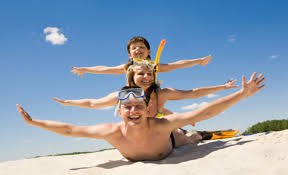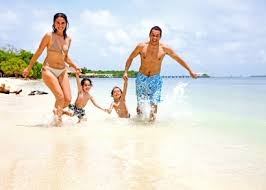Ad Disclaimer!
This website uses paid adverts and affiliate links, these come at no additional cost to you and help us to fund the operation of the website, meaning we can continue to provide you with valuable content.
The money received from these links and adverts do not influence any recommondations made within our content.
Planning and Before you go
 On the Move
On the Move
When you’re on the move and you’re travelling through busy, crowded airports or transport hubs, write your mobile number on your child’s arm in biro in case they get lost.
Also entertainment is the key for kids of all ages, especially when there are delays in flights etc. The easier the better so hand held game stations are always a favourite for travelling parents.
Even if all your children are long out of nappies, don’t forget the baby wipes. They’re useful for washing hands, cleaning toilet seats, and wiping down restaurant tables. In the same spirit, little bottles of hand cleanser can be a lifesaver in some countries, but check the travel regulations for liquids well in advance.
A pram or buggy can be useful on holiday even if your child is walking, serving as a place for them to rest during day trips, a makeshift bed when out in restaurants and something to help with carrying the bags. If your destination is unlikely to have paved paths, it may be worth investing in an all-terrain version.
In each new place, don’t forget to designate a meeting point in case anyone gets separated from the group. If it’s likely you’ll be in really dense crowds, promising a reward for staying together works as a good incentive.
If your child is on bottles, bring what you need to make up fresh ones along the way; to save space, fill spare bottles with water, then add milk powder and top up with boiling water when you need them.
Check the latest restrictions on hand luggage before travelling. The more stringent regulations relate to carrying liquids, gels and creams, which includes baby foods, drinks and nappy cream. The standard instructions are not to carry over 100ml of any single item, although exceptions are usually made for essential medicines or supplies for children under two. You can also get away with more (up to 400ml) in the way of milk and drinks so long as these are decanted into bottles and no-spill cups; if you carry the same in the original cartons or bottles, you’ll be asked to leave them behind. There are also discretionary limits for baby food – these are generally kept vague, but as long as you don’t have more than what security staff deem to be a reasonable amount for the flight, you’ll usually be fine.
The best way around the restrictions is to decant creams into small bottles, and bring just powdered milk; you can get hot water to make feeds on most flights, and as soon as you pass security, you can buy bottled water too.
Some airlines let you check in online, which allows you to book preferred seats from home and cuts out queuing. When you get to the airport, you usually join a fast-track queue to hand over your checked luggage. Some airlines allow you to check in luggage in advance, sometimes as much as a day before you fly. Though you have to make an advance trip to the airport to do this, the advantages are that you get to turn up a little later than usual on the day, and will have your hands free to tend to your children.
 When there
When there
If the tap water isn’t safe to drink, you’ll need to boil, filter or sterilise your own, or buy bottled water. If you plan to use bottled water to make up formula feeds, aim to get the lowest mineral content you can. Make sure the children don’t drink from taps, including when brushing teeth. Keeping a bottle of drinking water by the sink is a helpful reminder.
When eating out in countries with poor standards of sanitation and hygiene, always eat at busy places where the turnover of food will be fast, and avoid buffets: they’re notorious for harbouring the bugs that cause diarrhoea.
When eating in restaurants, if the crockery or cutlery is wet, giving it a dry wipe with a clean tissue will lower any potential dose of bugs. Check that bottles and cans are unopened before handing these to the children (and use straws or clean the can or bottle before they drink), and get them to avoid ice and salads.
For other tips please see the NHS Choices site which you can access by clicking here.